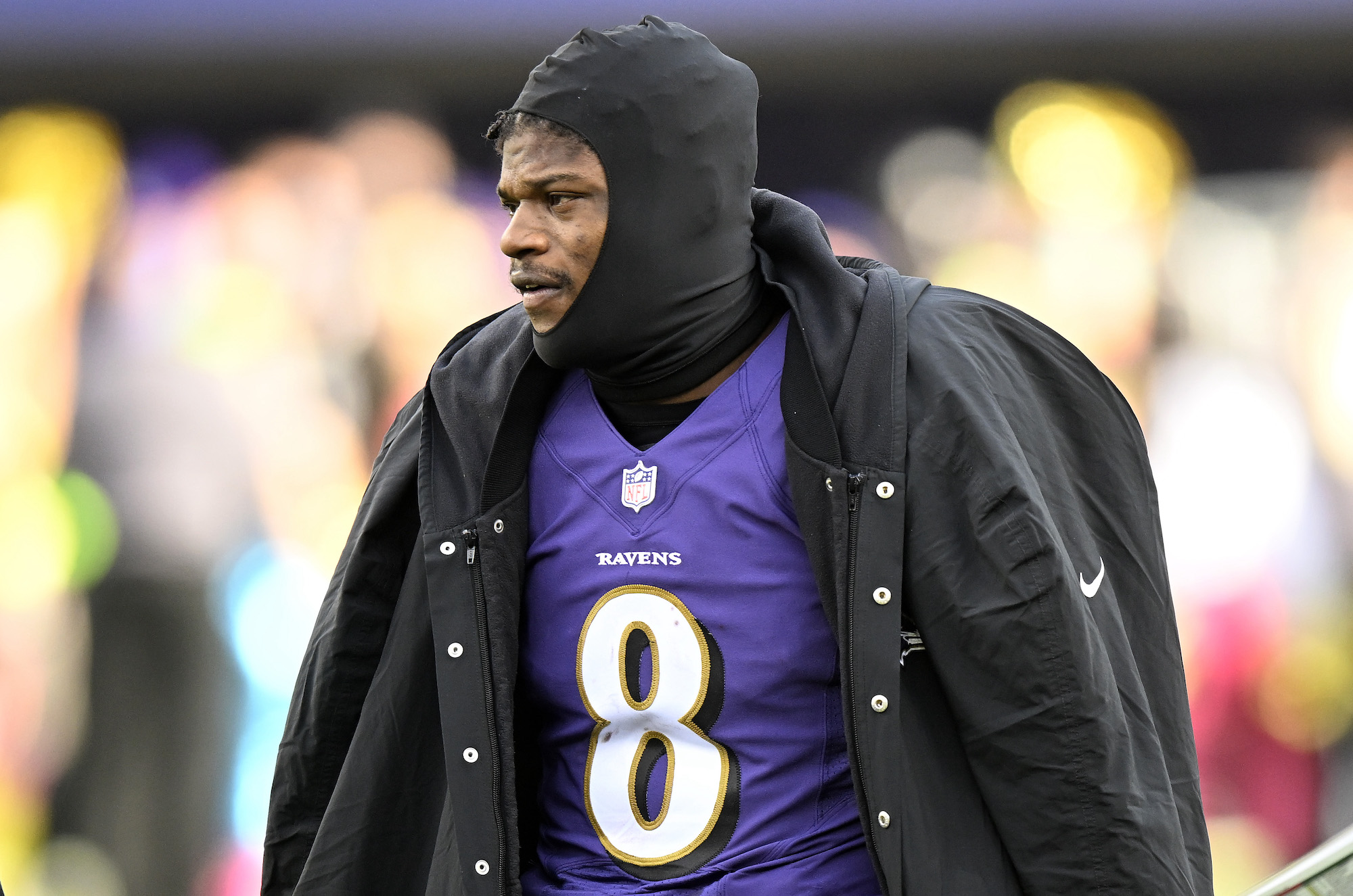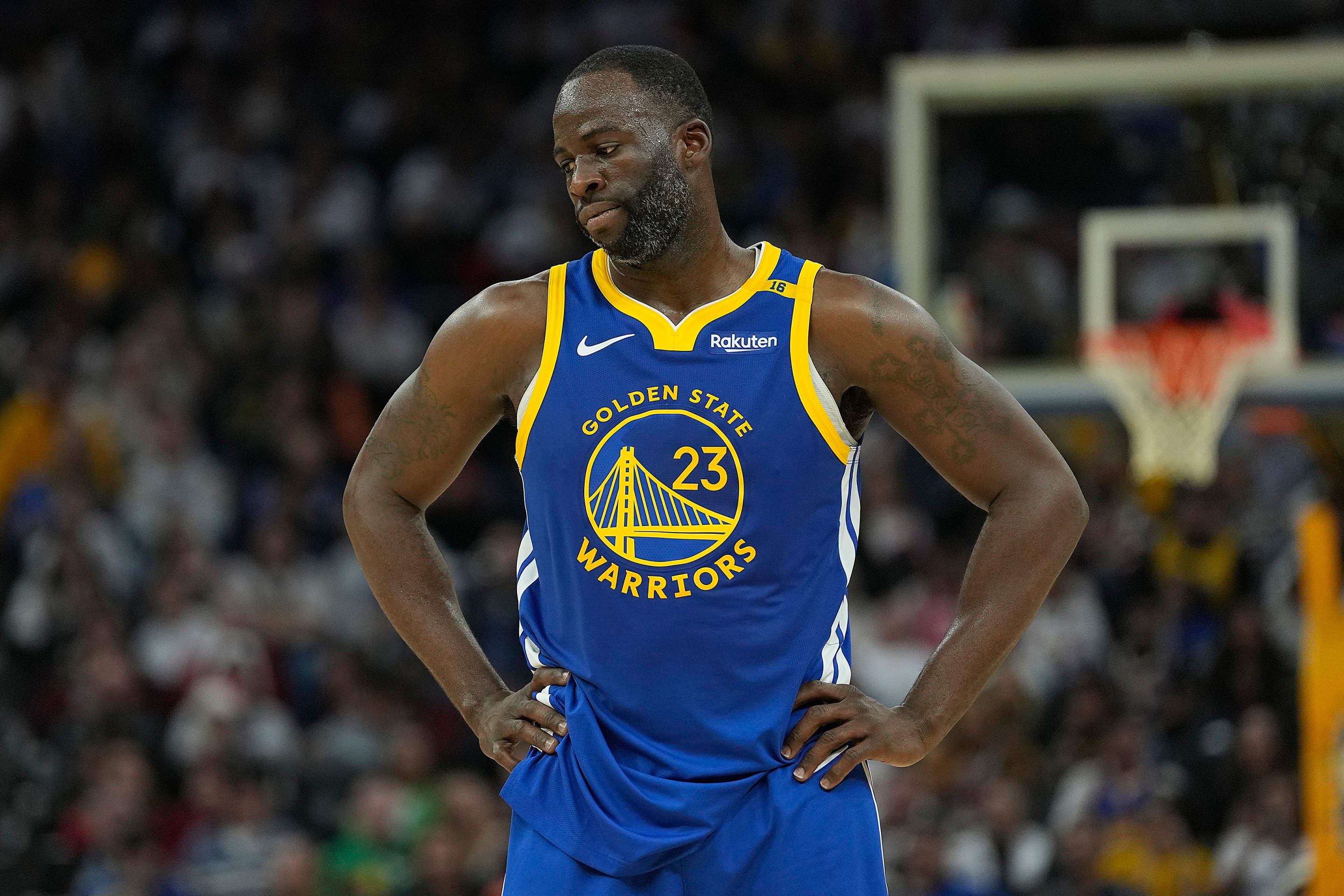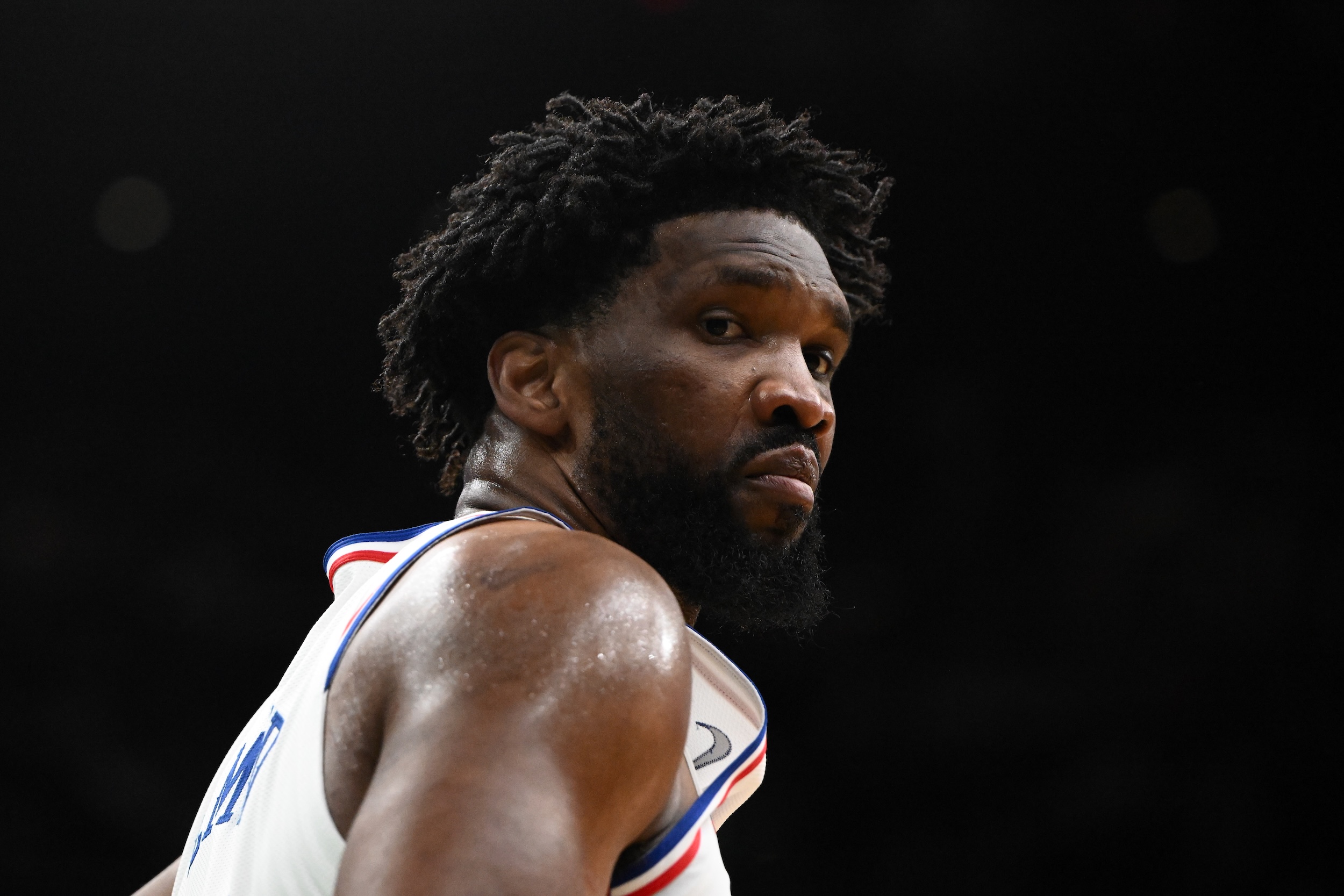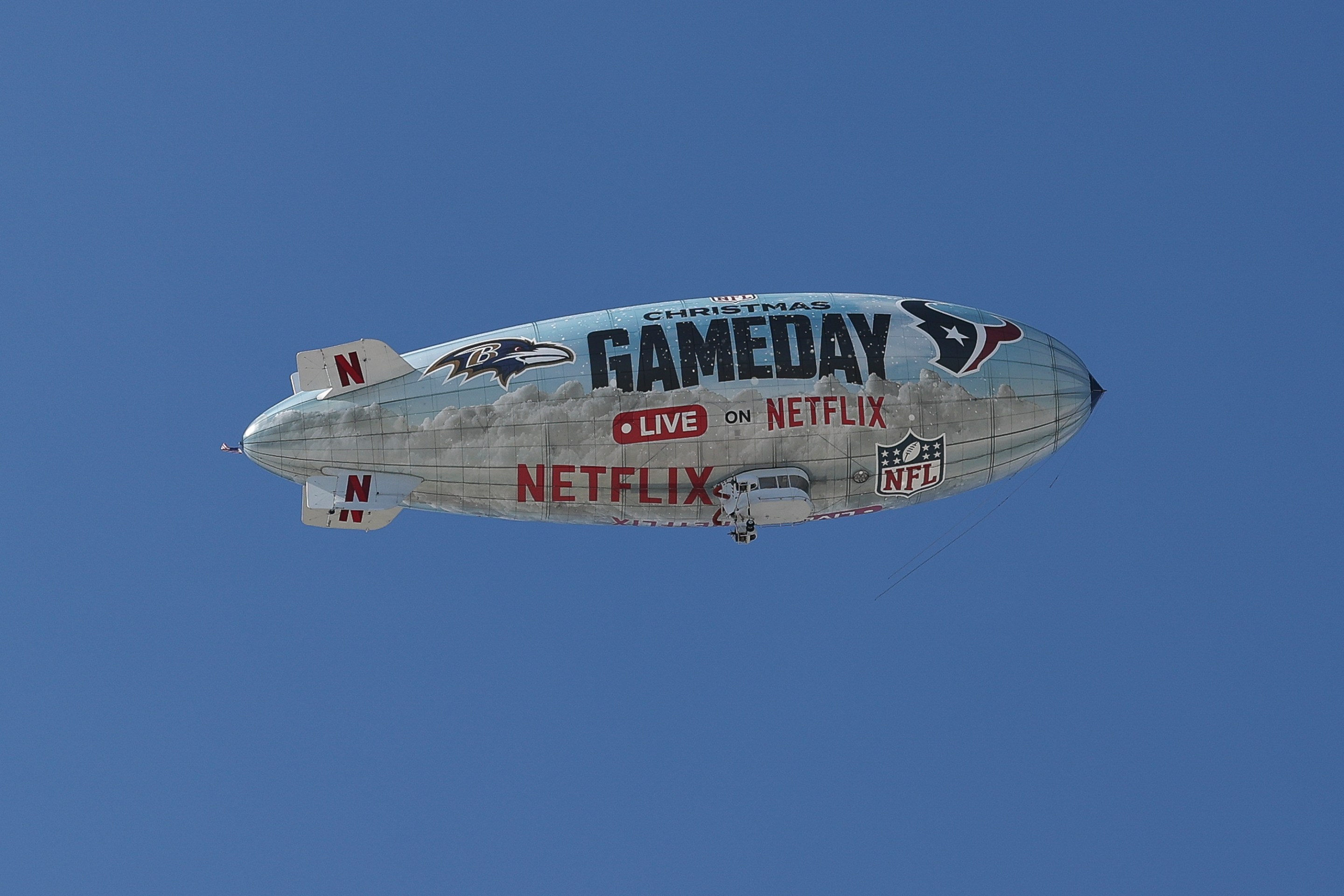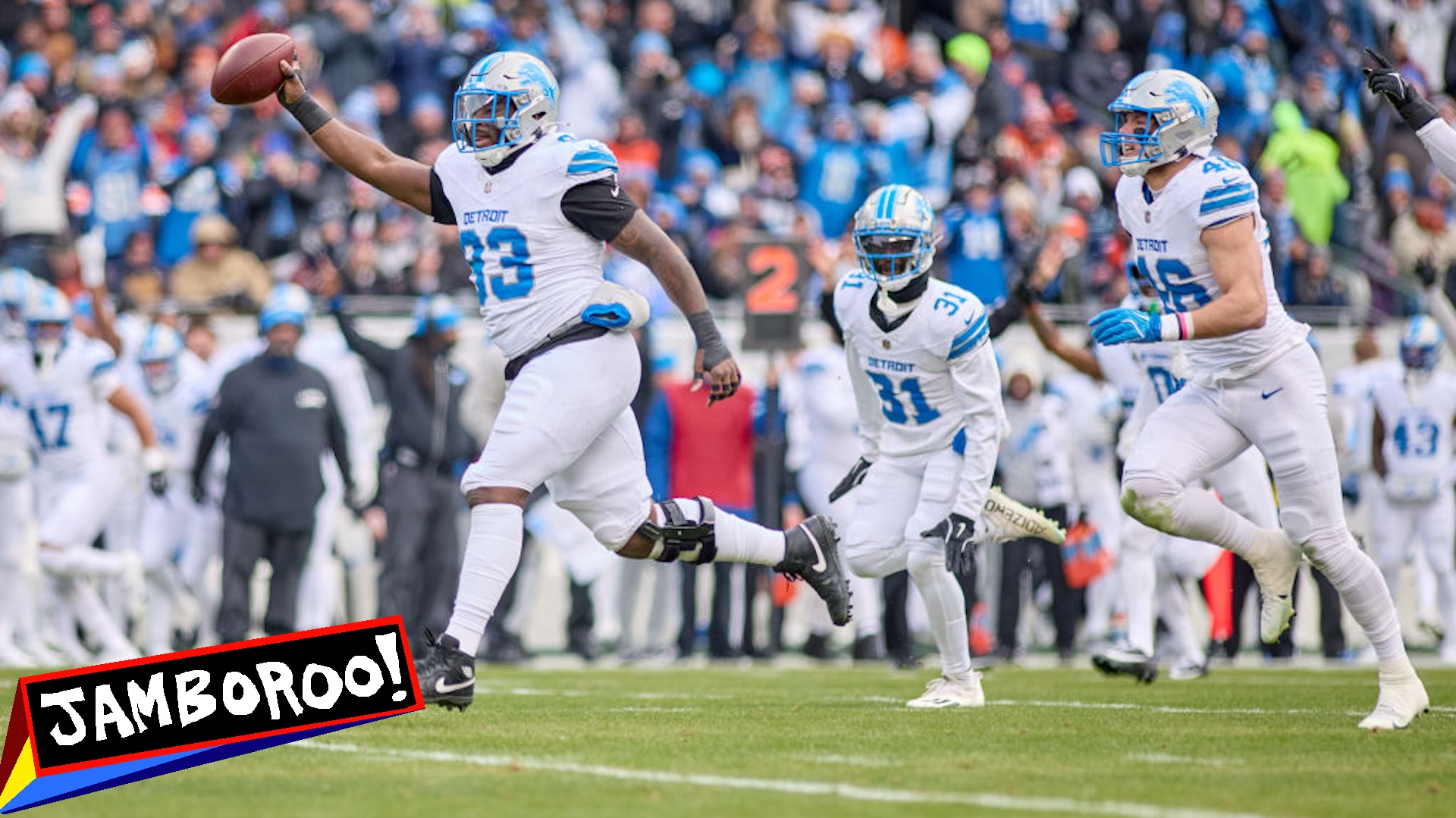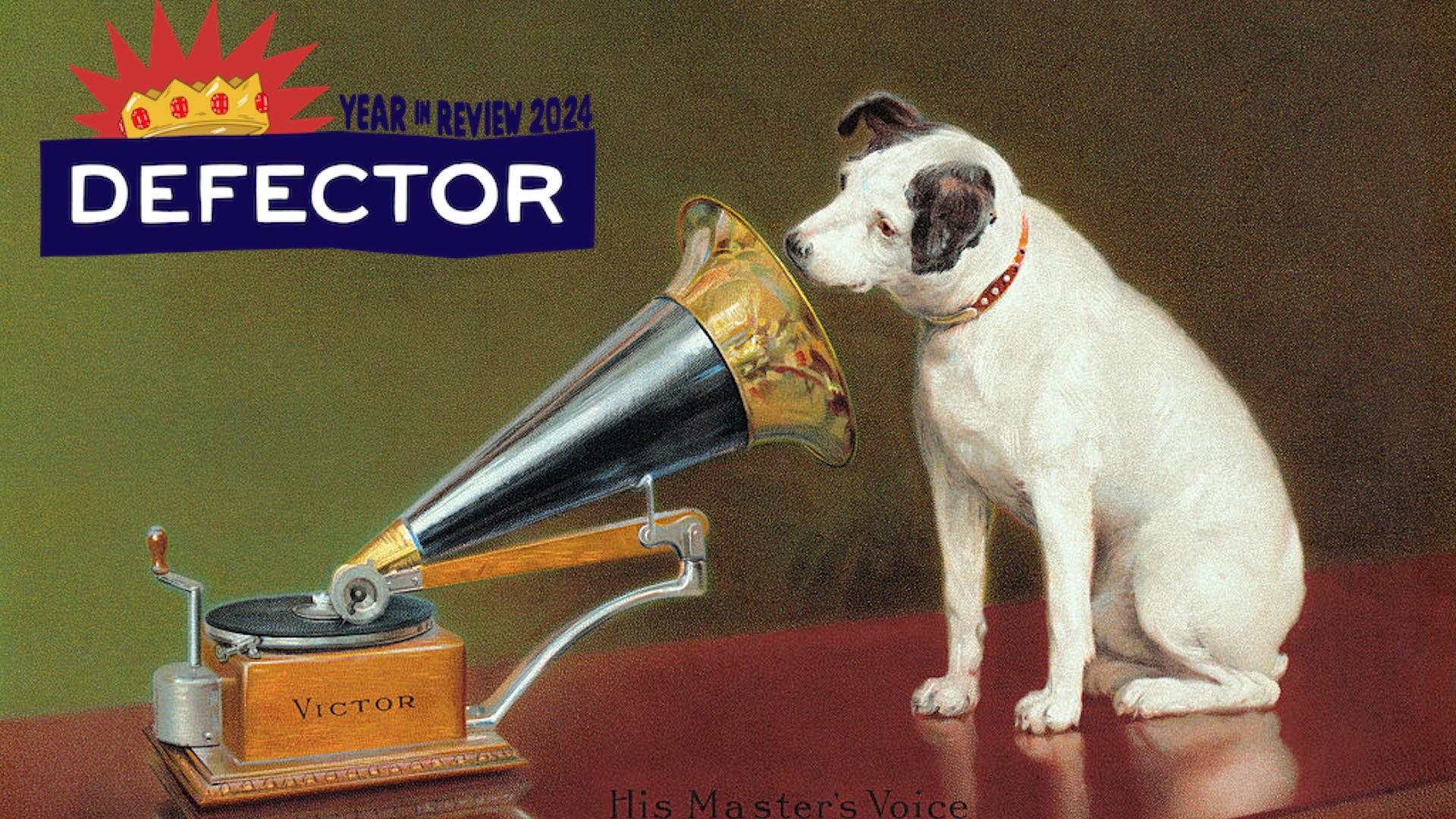The Baltimore Ravens have to make a decision on Lamar Jackson by March 7. They can hit him with the exclusive franchise tag and keep him, or use the non-exclusive franchise tag and see if another team will trade first-round picks for him, or let him walk. There's also the option where they give him the fully guaranteed long-term deal he's looking for, but right now that seems very unlikely.
Thursday's ESPN report functioned as a summary of how the 2022 season played out between Jackson and the Ravens. The QB was offered a deal in September, declined it, and chose not to keep negotiating until the season was over. Jackson missed a chunk of the second half due to a knee injury, and didn't play in Baltimore's one playoff game, a loss to the Bengals. There were points during the season where Jackson publicly grumbled about not getting the money he felt he deserved, and the team was worse without him. The framing used by Jeremy Fowler and Jamison Hensley here is a little annoying. It's not attacking Jackson as much as an article in this vein would have a few years ago, but at points it treats him like he's asking for something unreasonable when he demands a fully guaranteed contract. Take this part, for instance:
Although all Ravens personnel interviewed by ESPN considered Jackson's injury legitimate, a few wondered whether having been granted a new contract five months earlier might have made taking the field in the playoffs a little easier for Jackson.
"Lamar can speak to that, but my feeling is no," Ravens GM Eric DeCosta said after the season. "I think Lamar was hurt. We see him every single day -- he's hurt.
"And his unique style as a player, as a quarterback, but as a mobile quarterback ... having a knee injury -- a serious knee injury -- makes it difficult. And so, it's just unfortunate that he got hurt [and] the timing of it. I know he was trying to come back. ... It was just bad timing, and I think bad luck for us and bad luck for Lamar."
Of course he would've played! This on-the-record quote is DeCosta trying not to irritate a potential free agent in the middle of a tenuous situation, but it feels pretty obvious: If Jackson had been given the guaranteed money he wanted, he would've rushed himself back because of his newfound financial security. But he chose not to end up like Robert Griffin III in 2013, lying on the turf in a playoff loss with a blown-out knee and a precarious future. Who can blame him?
Then there's the reason why Jackson, the 2019 NFL MVP, thinks he's worth the commitment: Deshaun Watson.
Jackson -- who has vowed not to speak publicly about his contract since the start of the 2022 regular season -- wants a fully guaranteed deal in line with the five-year, $230 million contract the Cleveland Browns gave Deshaun Watson in March. The Ravens, meanwhile, are balking at guaranteeing the full amount, according to team sources. Jackson turned down a five-year, $250 million contract in September that included $133 million guaranteed -- far less than Watson's deal, but more than the guaranteed figures awarded to Russell Wilson ($124 million) and Kyler Murray ($103.3 million) last offseason.
According to a source with knowledge of Jackson's contract negotiations, all of his counteroffers to the Ravens last year were for fully guaranteed contracts that exceeded that of Watson, who signed his deal with the Browns after being traded from the Houston Texans and before serving an 11-game suspension for violating the NFL's personal conduct policy by committing sexual assault, as defined by the league, on massage therapists.
"Just because the Browns were desperate doesn't mean that the Ravens are," a "high-ranking" anonymous executive told ESPN. "They are a stable franchise. They aren't about to jump at something just because Cleveland did it."
That executive must not have watched Tyler Huntley. I don't know how this will be resolved, but it's clear that the Watson deal, in which Browns owner Jimmy Haslam gave the most fully guaranteed money ever to an NFL player, isn't going away. Maybe if the league hadn't permitted teams to hold a bidding war on a pervert, it wouldn't have inflated the market for a quarterback. Seems like a problem of their own making, to be honest. So we have a situation in which front-office guys desperately try to frame Watson's contract as an outlier, while players and their agents view it as a precedent. And since Jackson's better than Watson and isn't reprehensible, why shouldn't he get more money?
Jackson doesn't need to wholly rely on Watson's deal as the example, either. Patrick Mahomes took up 17.1 percent of Kansas City's payroll in 2022, the highest cap hit on the team at $35.7 million, and they still won a Super Bowl. Jackson isn't as good as Mahomes, but the Ravens are just as reliant on their quarterback. It's not like teams are tight for money anyway: In January, the NFL increased the 2023 salary cap by $16.6 million for each team.
Regardless of what the Ravens decide to do with Jackson, there will be more such cases in the future. It won't be long before Joe Burrow and Justin Herbert reach the end of their rookie deals. If they don't get contract extensions in a timely manner, who do you think they'll point to for precedent?
In a way, it's extremely fitting for the NFL to be in this situation. The only way to get actual guaranteed money as a player is to be a talented creep and thus on the market in your prime, and convince one willing owner that you'll need a historic amount of money, some of which will be used to urgently deal with 20-plus lawsuit settlements. Maybe that's an outlier, but it's easier to imagine something like that happening again rather than the Ravens willingly paying a 26-year-old former MVP what he wants.
